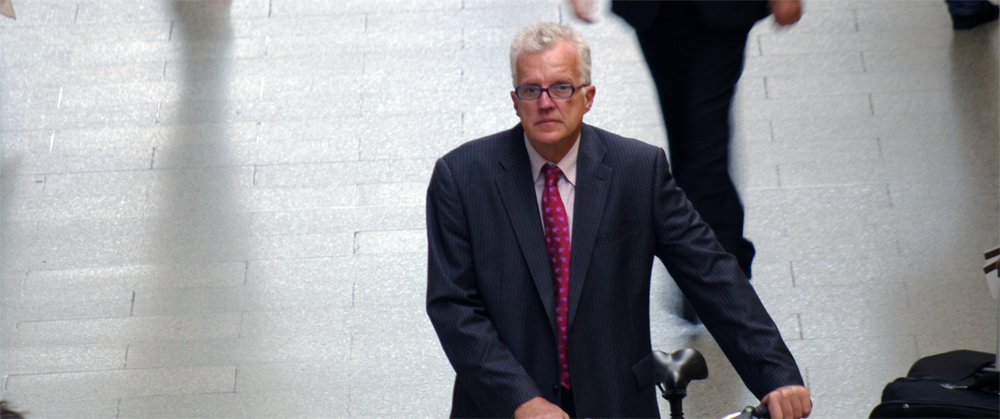BBC DVD 180 mins, three 60 minute films £19 99 (£7 from bbc shop online)
It’s not leaves on the line which hold up the trains on these Indian hill railways. It’s the occasional rogue bull elephant intent on staying his ground on the track or, more often, a boulder brought down by the torrential rain which can only be cleared with the help of dynamite. The railways’ equipment may be long past its sell-by date and the coaches seem to be held together with Bostik, but there is a determination on the part of the railway workers to keep services going in the face of monsoons or landslips that put Network Rail’s efforts in the face of the odd leaf fall to shame.
These three films, covering respectively the Darjeeling Himalayan Railway, the Nilgiri Mountain Railway and the Kalka-Shimla Railway, tell their story through a cast of characters linked to the railway, from the 90 year old porter, Ashroo Ram, who has no plans to retire to Sanjay, a clerk, who speaks rather inexplicably in aphorisms such as ‘to make love to a goddess, you must be endowed with a flagpole’.
Built by the British a century or more ago, the lines were once the only way to reach the hill stations where India’s colonial rulers spent their summers away from the damned hot plains but now survive on a diet of tourism and lavish subsidy from the state-owned Indian Railways. It is money well spent. These railway lines, as every one of the engaging heroes of these films emphasises, may no longer be the lifeblood of the communities they serve since there are now road connections, but they remain essential to their identity.
The journeys up the hills are slow, taking in the case of the Nilgiri five hours to cover a mere 26 miles. No one, though, would want them to go faster as they wind up hills which offer a mix of stunning scenery and almost clichéd images of Indian daily life with shots of tea pickers and cows sitting unabashed and undisturbed in the middle of a busy highway. India, especially the traditional India which still survives here thanks to the remoteness of the hills, comes across as a blend of fifties Middle England – one almost expects to see John Major pop up on his bike – and the colourful chaos of a lavish West End musical.
There is, too, something old-fashioned about the dedication and the sacrifices made by people who are intent on bettering themselves, dragging both themselves and their country out of the poverty which was once its abiding hallmark. Most moving, perhaps, was the woman porter at Darjeeling station, who earns 50 rupees – 60p – for carrying a whole family’s suitcases up the steep alleyways of the mountainside town. Sameena’s ambition is to send her oldest boy to the prestigious local St Joseph’s college so that he gets the education she never had. And against the odds, she succeeds, even in a moving scene, managing to persuade the principal to waive the college fees as clearly they are beyond her means.
The feeling of continuity and the sense of duty of the railway servants, a term which they bear with price, hark, too, back to a different age. The hill railways, staffed by hundreds of people, may be inefficient in modern terms, but they are effective at creating jobs for large numbers of locals who, in turn, treat them with respect and affection.
This series of films is not for trainspotters. Sure, there are numerous shots of steam locomotives chugging up the hills, but it is the context in which the railways operate that is so fascinating. Beautifully shot and narrated with aplomb by Bernard Hill, the only aspect that grated was the decision to put subtitles on every time an Indian spoke English. That smacked of the Raj which thankfully, unlike these wonderful rail lines, no longer survives.
